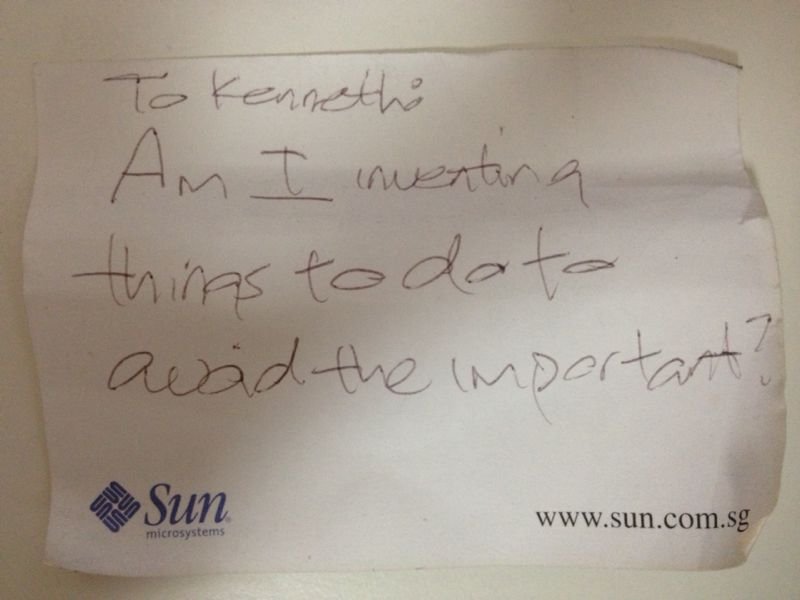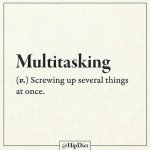Recently, I went to visit an old client, Energizer, to find out how things are with them. After speaking to the plant manager, he brought me down a staircase and I saw something hung up on the wall that made me really excited!
It was two of the flipcharts that I wrote for them three years ago for their management retreat! I was rather proud that they took my words seriously and some people commented that they could still remember certain experiences and lessons that they took back.
This prompted me to write about how we can retain learning and also make an impact in training. The end result for all training programs is not to educate, but to create a realization that all participants need to take action on what they have learned. Here’s what works for us in Deep Impact and certain philosophies that we take when creating memorable experiences.
How to retain learning for a long time:
1. Create a compelling case.
The first thing that we normally address is why you need to take action on what you have learnt. Many people attend training and become ‘more informed’ but knowledge does not change people. Only applied knowledge does. This is why in our training and teambuilding programs, we stress a lot about taking action.
Suggestion: To retain what you have learnt, you need to always ask yourself why and how this will affect you in your work or personal life. If there is a compelling case, you will tend to remember it well.
2. Create quotable moments.
You must have very simple phrases that people will remember and use it often after the program. We force ourselves to be able to write key phrases on the flipchart board. This limits the number of words we use and also forces us to be very precise about the words used. Interestingly, many of our clients remember keywords very well and if you use it enough throughout the training, they will also use it.
Suggestion: After an important lesson, write down key statements or even the quotations that you have picked up. The mind wonderfully picks up these short phrases (3-5 words maximum) well.
3. Use emotions.
This is something I believe separates good from great transformational programs. Emotions can harnessed into a very powerful force that literally creates a deep impact on a person’s memory and this can be a good thing. Emotions can be described as making you feel frustrated, happy, grateful, etc.
These emotions, when used correctly, will help a person remember things very easily. It creates an anchor there an incident triggers a flood of memories, in which the lesson is built inside. Just think about it, sometimes you might not remember what you ate last Wednesday for lunch but you could remember everything that happened on the day you were angry or happy about something.
Suggestion: Utilise emotions in your own personal learning. Be emotional about what you have learnt.
4. Keep visual reminders.
The reason why Energizer kept the flipcharts on the wall because they needed constant reminders after the program. For myself, I literally kept a whole wall filled with flipcharts right in front of my bed for a few years. This is so that I can visually see the important lessons and reflect on whether I have been following up with them. If you do not keep visual reminders for yourself, you will probably not remember much about what you have learnt just after a month.

In this photo above, I have kept this simple note hanging on my wardrobe even after 4 years. I felt that I needed to constantly remind myself not to invent things to do to avoid the important things.
Suggestion: Place notes or flipcharts over the places where you constantly see or walk by. Use them to serve as visual reminders and ask yourself whether you are doing it right now.
5. Create discussions
Create regular habits with your colleagues to discuss about what you have learnt or something that has impacted you. If you talk about it, it forces you to be clear about what you want to bring and whether anything has been done about it. If you ask people to make you accountable for it, you will surely know that they will make sure you do it.
Suggestion: Have regular sharing sessions to facilitate what you have learnt. To get a bigger impact, consider asking everyone how it leads to them applying what they have learnt.
Conclusion
I’m convinced if you were to follow the 5 strategies above, you will definitely remember more after every training session. To your learning success!







